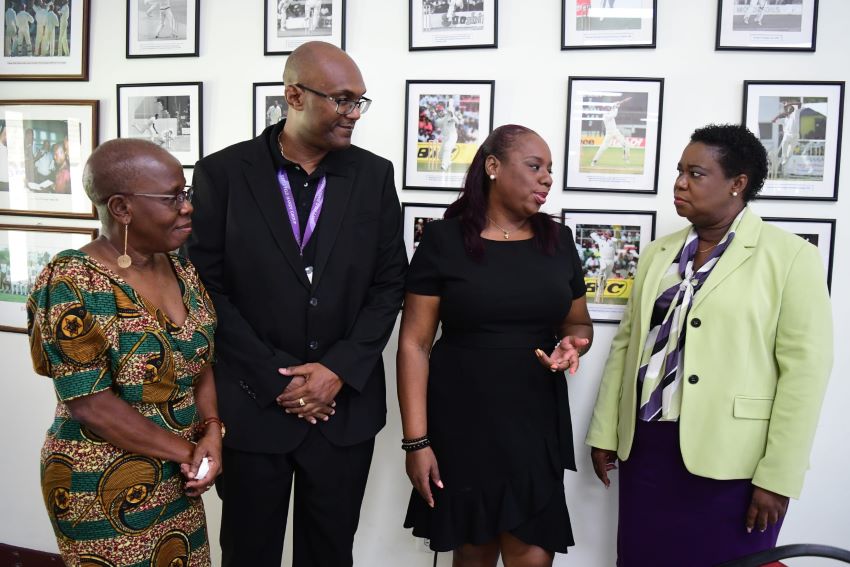
Guidance counsellors, counsellors, and specialists in schools across Barbados have been told that it is important to be trauma informed.
This was emphasised on Wednesday by Deputy Permanent Secretary (DPS) in the Ministry of People Empowerment and Elder Affairs, Mark Franklin, as he addressed the Trauma-Informed Care Workshop, jointly sponsored by the Child Care Board (CCB) and the Barbados Public Workers’ Cooperative Credit Union Limited (BPWCCUL), at the 3Ws Oval, The University of the West Indies, Cave Hill Campus.
Noting that to be trauma informed would allow for the tailoring of interventions to greatly improve the well-being of adolescents who experience trauma, Mr. Franklin said: “It also allows them to engage in psycho-education with their peers as well as students, so that children are not re-traumatised. This results in a better outcome for both students and staff.”
The Deputy Permanent Secretary, in defining trauma-informed care, alluded to the American website “Centre for Health Care Strategies”. He pointed out that “Trauma-informed care shifts the focus from “What’s wrong with you?” to “What happened to you?” A trauma-informed approach to care acknowledges that health care organisations and care teams need to have a complete picture of a patient’s life situation – past and present – in order to provide effective health care services with a healing orientation.
“Adopting trauma-informed practices can potentially improve patient engagement, treatment adherence, and health outcomes, as well as provider and staff wellness. It can also help reduce avoidable care costs, for both the health care and social service sectors.”
Mr. Franklin told participants that this definition spoke to the importance of trauma-informed care to vulnerable populations, especially children, and If applied correctly, it could positively impact and change the fortunes of young persons “who may otherwise be seriously impacted by a traumatic event that if left unchecked, may leave them with deep mental and psychological scars, well into adulthood”.
He further pointed out that with this basic understanding of the need for and importance of trauma-informed care, there was also the need for more public education, awareness, and sensitisation about the concept.
Noting that the workshop aimed to do so by building the capacity of persons to better respond to trauma and critical incidents, he said: “We recognise that our children and young people are under constant, continuous, and unrelenting stress.
“They continue to be assailed by various types of abuse, exposure to violence, close proximity to dangerous, behaviour-altering illegal drugs, heavy exposure to illicit sexual content on the internet, death of loved ones, divorce or separation of parents, bullying and the list goes on. When combined with the increasing presence and impact of social media, these issues are exacerbated and further have adverse effects on young, impressionable minds, that are still in the developmental stage”.
DPS Franklin lauded the BPWCCUL for joining with the CCB to conduct the workshop and urged others in the private sector to also engage in similar meaningful, positive alliances aimed at solving “the most vexing socio-economic issues confronting our modern-day society”.
